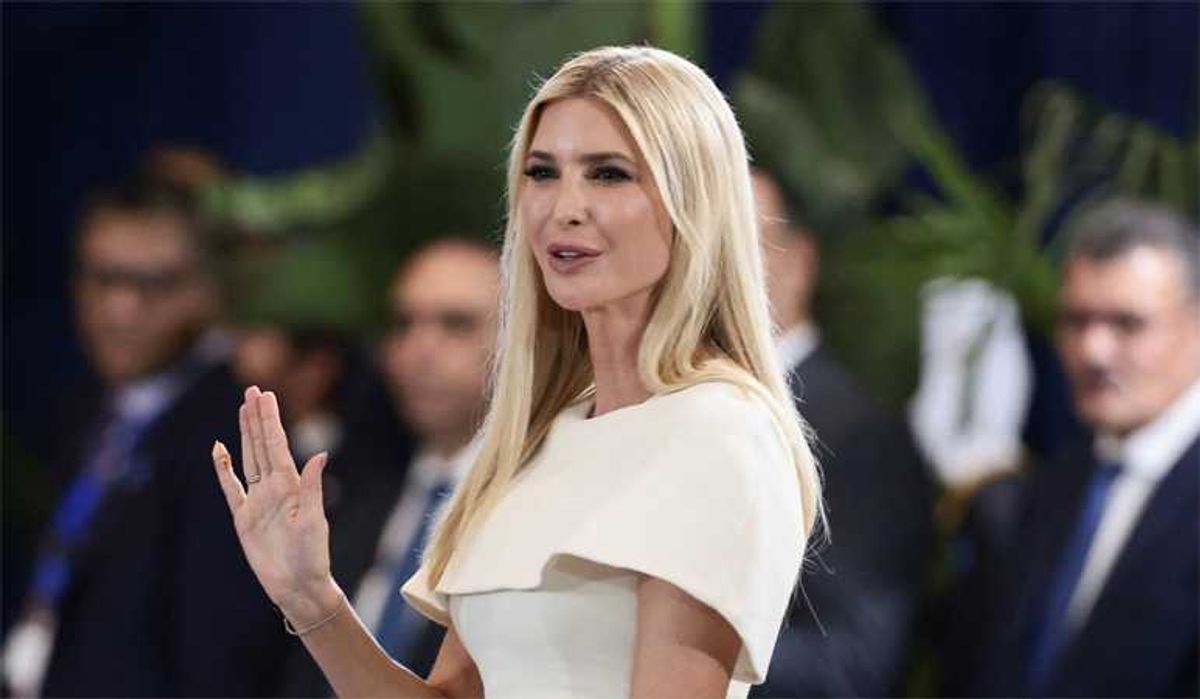
The decision by Ivanka Trump to dip her toe back into politics by appearing at the Gaza ceasefire treaty signing on Monday — which she had nothing to do with — left one observer cold.
The so-called “first daughter” has been out of the political spotlight despite her father having won a second presidential term on a third try, retiring to her $24 million mansion on Miami's Indian Creek Island where she frequently posts exercise, surfing and fitness videos on Instagram.
With her husband, Jared Kushner, being one of the chief negotiators in the ceasefire in Gaza that led to the release of Israeli hostages, Donald Trump’s daughter was singled out and featured at the signing ceremony, which led the Independent’s Holly Baxter to ask why.
“Ivanka Trump has re-emerged in Israel this week, smiling beatifically as her father’s admirers cheer and cameras click. She’s radiant, modestly dressed — and, by the way, did you know that when she converted to Judaism in 2009, her father didn’t even know she was going to do it?” Baxter wrote late Monday before dryly noting that Trump's eldest daughter's political resume is now limited to “daughter of Donald, wife of Jared.”
Pointing to previous relatives of presidents who have taken center stage for one reason or another, she wrote that, “Ivanka’s most relevant experience, by contrast, is having once been photographed near a peace treaty. She’s an ‘advisor,’ according to the White House, though it’s entirely unclear what she could be qualified to advise on.”
Recalling an awkward — and widely ridiculed — Ivanka appearance at the G20 conference in 2017, Baxter noted that didn’t stop her from coming out of the shadows once again and onto the world stage.
“It’s a little weird watching Ivanka take a bow for international developments she didn’t engineer. But maybe it’s the perfect image for our era: a woman born into power, blessed by privilege, bathed in soft light, and applauded for simply showing up,” she wrote, and then joked, “If America’s founding fathers could see Ivanka now, they might weep. Or perhaps they’d just shrug and say, ‘Ah. So the monarchy’s back. I guess the experiment failed.’”




